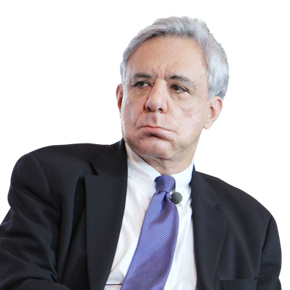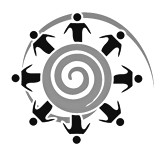In October 1995, President Levon Ter-Petrossian was in New York for the 50th anniversary celebrations of the United Nations. I, as deputy foreign minister, was part of the delegation. I had arrived in New York from the Colombian city of Cartagena, where I had been an observer at the Non-Aligned Movement Summit.
On October 23, Ter-Petrossian met with Turkish president Suleyman Demirel in New York. That was the first time the presidents of Armenia and Turkey had met, since Armenia’s independence. In April, 1993, Ter-Petrossian had gone to Turkey to take part in Turgut Ozal’s funeral ceremonies.
In 1993, Turkey had completely sealed off the border with Armenia. In 1994, a ceasefire had been declared between Azerbaijan and Karabakh. Nevertheless, the situation on the front line remained tense. The meeting between Ter Petrossian and Demirel was also tense, right from the start. Ter-Petrossian said a few words in Turkish, and the mood in the room changed a bit. But as the real discussion began, the tension increased.
Demirel had positioned himself as the representative of a great power and repeatedly offered Ter-Petrossian ‘fatherly’ advice on Karabakh, on the adjacent territories, as well as on past and future Armenian-Turkish relations. Ter-Petrossian of course responded to all of that in his characteristic composed, albeit sharp and compelling, style. The meeting produced no results. Profoundly disappointed by Demirel’s tone and approach, we left the room. In the elevator, on the way down, there was total silence. Ter-Petrossian’s security officer, Romik, offered this bit of humor: “Don’t worry, chief,” he said, “One of these days, we’ll probably go to his funeral, too.”
After my appointment as foreign minister, I was present at two meetings between Robert Kocharian and Demirel. The first took place on June 5, 1998, in Yalta, at the Black Sea Economic Cooperation Summit. The second, in November, 1999, at the OSCE Summit, in Istanbul. These two meetings were not any different from the Ter-Petrossian – Demirel meeting. Demirel’s thinking, style and approach had not changed, nor had the Armenian side’s responses.
I had many meetings with my counterparts, especially with foreign minister Ismail Çem. In these meetings too, there was not a hint of Turkish readiness to unconditionally enter into diplomatic relations with Armenia, nor to open the border. The Turks linked it all to the Karabakh issue, and the Karabakh issue alone.
In 2002, the Turkish government changed. Regep Tayyip Erdogan’s Justice and Development Party (AKP) came in first in the parliamentary elections. Abdullah Gul served as Prime Minister, then Erdogan took over, once the extant legal obstacles against him were removed. Gul became foreign minister.
On June 3, 2003, I was to participate in the NATO EAPC Ministerial session. The new Turkish foreign minister, Gul, was also going to be there. We had received messages through diplomatic channels that Gul wanted to meet with me. It had already become apparent that there were to be changes in Turkey’s foreign policy, although Neo-Ottomanism and “Zero Problems with Neighbors” took shape later, in 2009. In those days, Ahmed Davutoglu was Erdogan’s foreign affairs advisor and the initial seeds of those policies were already visible.
Armenian-Turkish relations have been tortuous over the centuries – extending from discrimination and plunder to massacres and genocide. But, for some reason, each time I would meet with my Turkish colleague, I would remember one particular episode of history. In April, 1918, immediately prior to Armenia’s independence, the delegation of the Caucasus Seim, which included Hovannes Kachaznuni, left for Trabizon, to enter into peace negotiations with Turkey. Trabizon had been chosen as the site for the negotiations because it was neutral territory. When the delegation arrived, they saw that the Turks had already occupied the city and presented themselves as the hosts.
Some time later, the delegation returned to Batumi. Near the shore, the captain noticed the Turkish flag flying high. Shocked, he called Kachaznuni and the rest of the delegation to the deck. They all stared at the flag, confused and distressed. Once they came ashore, it became clear that the Turks had occupied Batumi as well. The ironies of history.
On June 3, 2003, I met Abdullah Gul in Madrid. This was our first meeting. We spent the first 10 minutes getting to know each other and agreed to sidestep protocol and address each other by our first names.
My impressions of Gul were positive. It was obvious he had a patient personality, reserved and modest in style and approach. As for the content of our conversation, I was pleasantly surprised. That day, Gul determined the agenda. He noted that Turkey wishes to establish normal relations with all neighbors. He said Armenia-Turkey relations should not be linked to Azerbaijan, and that Armenians and Turks, by solving their bilateral issues together, would have a positive impact on the Karabakh resolution. I responded immediately, pleased that Turkey had reached such a conclusion, and said that Armenia had ascribed to that approach from the very beginning. That day, we departed on that positive note, and agreed that we would use the next possible opportunity to continue our negotiations.
The next time I met with Gul was on September 25 of the same year, at the UN General Assembly. But this meeting was a step backward from the previous one. Gul remarked that we can’t ignore the Karabakh issue altogether and that it must definitely remain on our agenda. My response was that would be no problem so long as Armenian-Turkish relations are not contingent on the Karabakh resolution. I also said that it would probably be difficult for Turkey to open the border in one fell swoop, and proposed moving forward, albeit with small steps. We agreed that we would come to our next meeting with lists – he would propose Turkey’s suggestions for small steps and I would offer Armenia’s and we would see what we had in common and where we could begin to move forward.
Our third meeting took place on December 5, 2003, in Brussels, during the NATO EAPC Ministerial session. As agreed, I came to the meeting with a list. Gul didn’t. Nevertheless, we went over my 10 items and he said that at least with the first several, he had no objections. We were proposing to Ankara that the Armenian-Turkish border be opened first for Armenian and Turkish diplomatic passport holders. The second step would be to allow those holding non-Armenian and non-Turkish passports. As a third step we proposed that Armenian and Turkish passport holders be allowed to cross the border within a limited distance. For example, Armenians could visit Ani, the Turks could come to Gyumri. Then, the border could be opened for trucks, and to utilize the Kars-Gyumri railway, even with the condition, that at least at the beginning, Armenia not benefit from that traffic. Instead, it would be used only for Turkish-Georgian transport, and Armenia would not charge transit fees.
Between that meeting and our next meeting, in April 2004, Azerbaijan’s President Ilham Aliyev made an official visit to Turkey. During the visit, Gul announced that imminent opening of the border is impossible. For me, that was a clear signal that we’re heading back to Squar One.
That’s exactly what happened. Our next meeting took place on June 28, 2004, during the NATO Summit in Istanbul. During that meeting, Gul officially informed me that they have discussed this topic extensively and he wished to state that Turkey would do nothing regarding Armenia-Turkey bilateral relations so long as there is no notable progress on Karabakh.
That day ended with a curious experience. The Turkish hosts had organized a reception for the NATO Summit participants in the courtyard of the Topkapi Palace. The reception was to begin with a massive concert, followed by a dinner for all participants – over 1,000 people. As we took our seats, I found myself in the center of the second row. The four seats directly in front of me, in the first row, were empty. It turned out those four seats were reserved for US President George Bush and his wife, and for Prime Minister Erdogan and his wife. They arrived just as the concert was about to start and shook hands with all those sitting nearby. Bush and Erdogan extended their hands to me as well, and I introduced myself, in English, as Armenia’s foreign minister. Bush turned and asked in his Texas drawl, “How’re the folks in Armenia doing?” I smiled and said all was well. His wife, Laura Bush, heard me say Armenia and turned to me to say, “Please give my regards to Bella.” Months earlier, in Moscow, Russian First Lady Lyudmilla Putina had organized a book and literature festival, with the participation of several first ladies, including the first lady of Bulgaria, as well as Laura Bush and Bella Kocharian.
When all were seated, it became obvious that this was going to be a huge event. There must have been 300 people on stage, representing all sorts of musical genres – from the folk to the contemporary to the classical.
Just as the concert was about to begin, what the program referred to as the Janissary Band entered, walking between the stage and the audience. Dressed in turn-of-the-century costume, a group of musicians playing the loud drums and pipes of the Ottoman period produced what were the clear strains of the “Aryunot Drosh” song whose melody and words were so familiar to me. It was one of the most popular patriotic songs of my youth. The music was identical. The Janissary Band walked, played and left the stage. I had tears in my eyes. The Ottoman Janissaries, after all, were military recruits – voluntary or otherwise -- almost exclusively young, and exclusively Christians.
Near the end of the concert, the same Janissary Band came back, walking in the opposite direction, this time playing a melody that was unmistakably “Dsayn me hnchets Erzerumi hayots lerneren.” Another memorable song. More emotions. I could not find an explanation for all this. One more irony of history.
Vartan Oskanian was the Armenian Foreign Minister in 1998-2008.
These views are his own.
























Comments
Dear visitors, You can place your opinion on the material using your Facebook account. Please, be polite and follow our simple rules: you are not allowed to make off - topic comments, place advertisements, use abusive and filthy language. The editorial staff reserves the right to moderate and delete comments in case of breach of the rules.